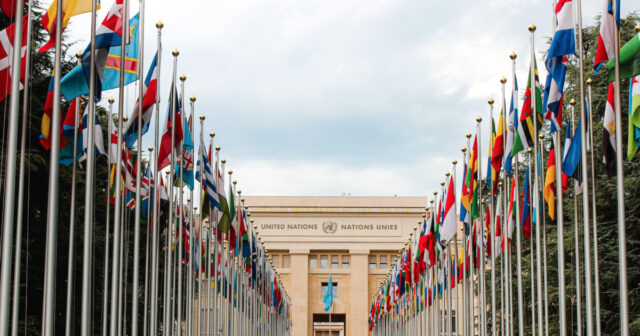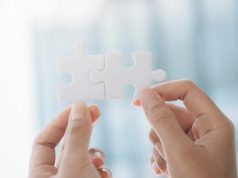|Harnessing business-led innovation for a better future
GRI podcasts on the SDGs explore industry support for tackling inequalities
How can businesses around the world take action that helps reduce inequalities, while fostering innovation to promotes inclusive and sustainable industrialization?
This is one of the key questions addressed by renowned experts in sustainable development, through the latest two episodes of SDGs: The Rising Tide – GRI’s podcast series that shines the light on business action for the Sustainable Development Goals.
SDG 9: Industry, Innovation and Infrastructure
This episode features Lena Hök, Sustainability and Innovation Executive VP at Skanska Group – a leading project development and construction group headquartered in Sweden – and Karen Basiye, Head of Sustainable Business and Social Impact at Safaricom, the largest telecommunications provider in Kenya. They discuss the role of business in driving the technological solutions needed to achieve the UN 2030 Agenda.
Lena Hök sets out the importance of SDG 9:
“SDG 9 can be seen as an ‘anchor SDG’ that catalyzes action on other Global Goals. The built environment, for instance, impacts everything – the buildings we live in, transportation and spaces in-between. Whatever we build will be there for generations to come. And it is not only about the environmental impact of buildings, but a social one, too – for whatever we build, we should strive to achieve the wellbeing of people who live or spend time inside the buildings, be it offices or private houses.”
Karen Basiye goes on to discuss the power of partnerships in fostering digital solutions with the Giga initiative as an example, a project to connect schools to the internet that is led by UNICEF and the International Telecommunication Union:
“At the end of the day, connectivity is not only about daily communications – it enables industrial processes and manufacturing of goods. What we have learnt early on is that whatever we do, we cannot do it alone – we need partnerships, and the Giga initiative is a perfect illustration of this, with different players providing expertise in various fields.”
SDG 10: Reduced Inequalities
In this episode, we hear from Shankar Venkateswaran, Chair of Oxfam India and a founding member of ECube’s Investment Advisors, and Molly Harriss Olson, CEO of Fairtrade Australia & New Zealand and a member of GRI’s Supervisory Board. They argue that tackling inequality starts with addressing structural issues at all levels of society.
Molly Harriss Olson sets the tone:
“It is not an accident that we have poverty in the world. Any more that it is an accident that there are seven white men who control 80% of the world’s resources. It is simply the way the system is designed.”
Shankar Venkateswaran explores the nature of inequality and the systematic issues that underpins it:
“This is the sad nature of inequality – it does not happen by accident and in one place, it continues to build up because of the operating model of society. One needs to want to change that model first.”
| All opinions expressed are those of the author. investESG.eu is an independent and neutral platform dedicated to generating debate around ESG investing topics.








